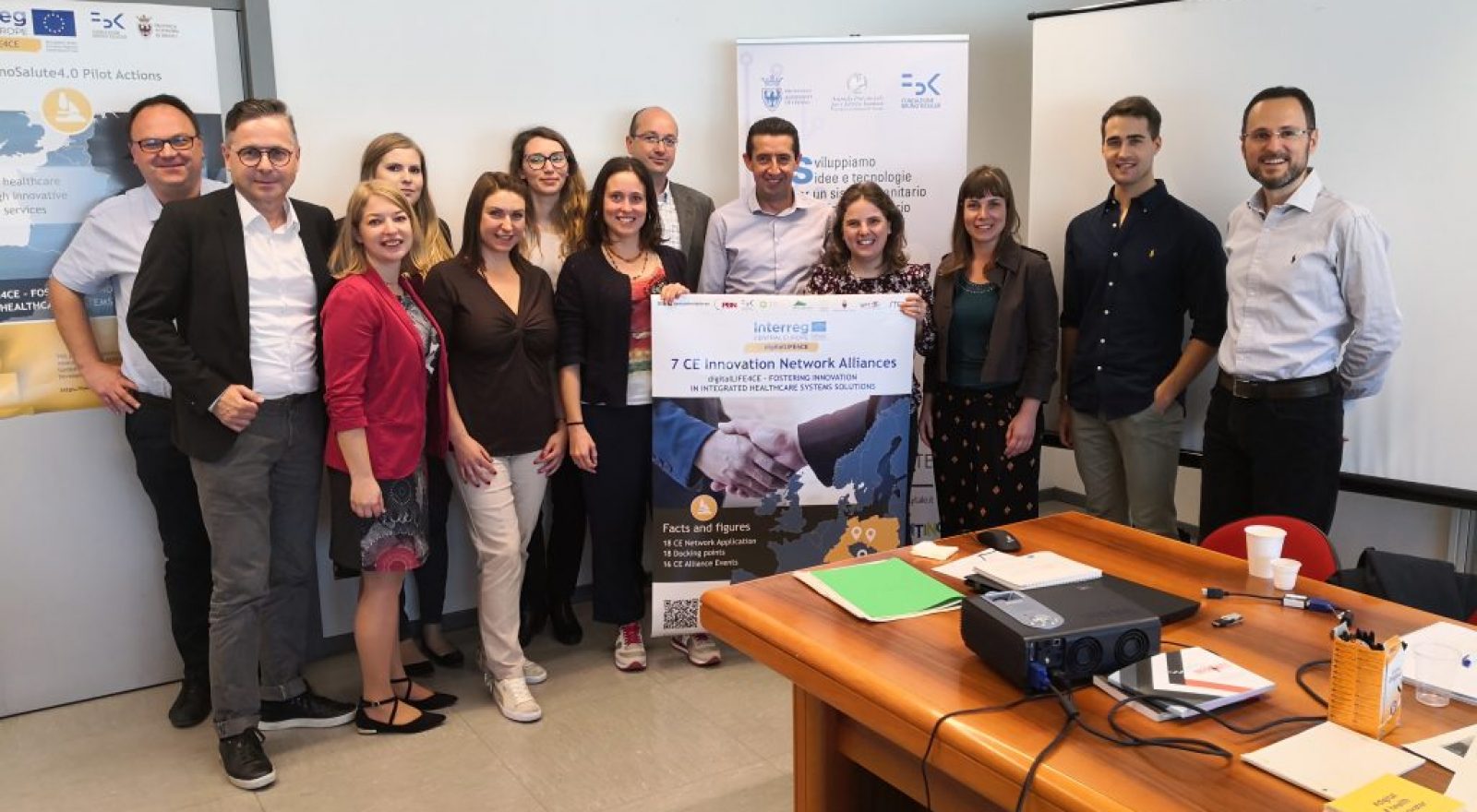Increasing competitiveness in the digital health systems of the European countries
The European project DigitalLIFE4CE, included in the Interreg Central Europe territorial cooperation program and which saw among FBK and the Autonomous Province of Trento, with TrentinoSalute4.0, the Competence Center for the development of digital health among its main partners has ended
Creating an area of excellence in the field of integrated health systems where cooperation mechanisms, aimed at achieving flexible solutions, can be activated quickly and transferred to strategic players; overcoming the fragmentation of the health system and the lack of cooperation between players in the industry; strengthening the capacity for innovation of the region starting from a shared knowledge of the solutions of excellence adopted by each partner. These are among the key objectives of the project that ended last October entitled “DigitalLIFE4CE” – Fostering innovation in integrated healthcare systems solutions.
To achieve this goal, the Consortium’s partners sought new solutions in integrated digital health systems through transnational alliances between strategic players operating in the field of innovation in health services based in Central Europe. The project, launched in April 2017, involved nine partners (research and innovation centers, technology parks, political organizations/administrations) from seven European countries that created a network of excellence in the field of digital health systems, where stakeholders could cooperate to reach solutions, facilitate and improve knowledge, skills and good practices sharing.
In this perspective, actions focused on two levels: local and transnational. With regard to the first level, seven hubs were created: the Central Europe Digital Healthcare Excellence Spot – one for each partner (or two partners, in the case of Germany and Italy) with the aim of improving each hub’s ecosystem thanks to collaborations with other Consortium partners.
In particular, the pilot action of Trentino Salute 4.0, such as CEDHES for the area of northern Italy (see the interview with our researcher Oscar Mayora), has created synergies in its Network Alliance, focused on “Technical & Organisational Infrastructure for Integrated Digital Healthcare”, to take advantage of collaboration opportunities with private entities, such as companies that can offer additional services to citizens and patients. With this in mind, a close collaboration was carried out with the Croatian partner, STEP-RI (The Science and Technology Park of the University of Rijeka), for the definition of a business model and strategies for entering the market (watch the video) and with an SME based in Munich, for the development of technologies in the management of chronic diseases.
As for the transnational context, the Consortium has created a six-year roadmap, which includes: a Think Tank, formally established in March 2019, whose goal is to contribute to the definition of digital health related policies, as well as Task Forces, working groups that aim to meet four key goals:
- consolidate and improve skills
- facilitate market entry
- facilitate access to technology solutions
- improve the potential for innovation.
Specifically, TS4.0 has started collaborations with FH Burgenland (Burgenland University of Applied Sciences – Austria) with the aim of transferring the knowledge and skills gained in Trentino in the field of digital health in the new Competence Center of the Austrian region.
More info
When
The project started in April 2017 and ended in October 2019.
Who/Where
• Project funded by the Interreg Central Europe Community program
• 9 partners (research and innovation centers, technology parks, political/institutional bodies) from 7 Central European countries:
- in Austria, FH Burgerland, as leader;
- in Germany Gesundheitsforen Leipzig / Med in Leipzig and the Sächsisches Staatsministerium für Soziales und Verbraucherschutz;
- in Italy Fondazione Bruno Kessler and the Autonomous Province of Trento;
- in Hungary Pannon Business Network;
- in Slovenia Technoloski Park Lubljana;
- in Poland Wrocław Technology Park;
- in Croatia StepRi.
Why
The project was created to overcome the fragmentation of the health system and the lack of cooperation between actors in this industry, both locally and in the Central European countries. To achieve this goal, the project is looking for new solutions in integrated digital health systems trying to create transnational alliances between strategic actors that operate in the field of health services innovation. The strengthening of the region’s capacity for innovation must start from a shared understanding of the solutions of excellence adopted by each partner. An exchange of this magnitude can thus offer a range of tools, methodologies, initiatives and good practices that can help define an effective combination of policies, research and development in the field of digital health.
Total funding
1.5 million euros.

